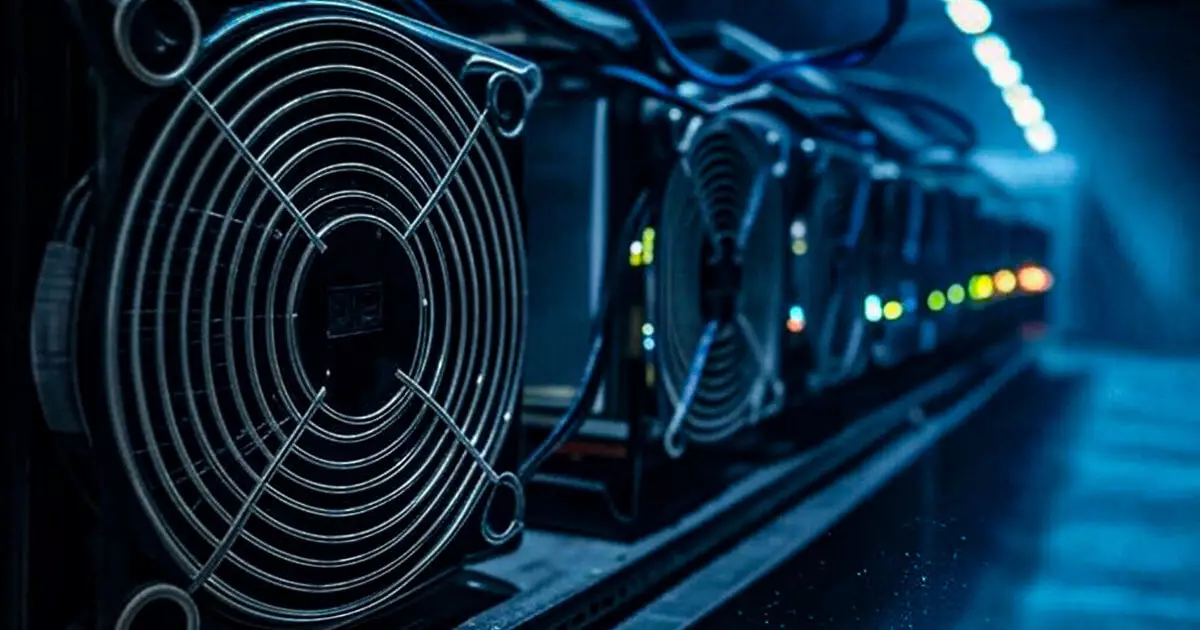The landscape of cryptocurrency mining in the United States is currently facing significant challenges, chiefly due to supply chain disruptions caused by geopolitical tensions and heightened regulatory scrutiny. US-based cryptocurrency miners, who rely predominantly on specialized hardware developed by companies such as Bitmain, are encountering delays in the delivery of critical Application-Specific Integrated Circuit (ASIC) mining rigs. This scenario unfolds against a backdrop of intensified oversight by the US Customs and Border Protection (CBP), particularly concerning shipments from China, the dominant market player in the BTC mining hardware space.
The Role of Geopolitical Factors in Supply Delays
Delays in receiving equipment can be traced partially to the US Commerce Department’s recent blacklisting of certain Chinese entities. Xiamen Sophgo Technologies Ltd., linked to Bitmain and accused of aiding China’s ambitions in advanced semiconductor production, was among those added to this list. Consequently, US import officials have raised their scrutiny levels, particularly with “Bitmain” labeled parcels facing random inspections. The evolution of these regulations is profound, particularly given the ongoing trade war between the United States and China. Previous distress witnessed with customs enforcement, such as the detention of Antminer S21 and T21 units last year, pales compared to the new measures currently in place.
Miners have reported that inspections are not only more frequent but also more thorough, with customs officers increasingly demanding certificates of origin. This added layer of bureaucracy significantly lengthens the waiting period for hardware shipments. For instance, an Oklahoma-based mining operation reportedly faced extensive delays owing to these stringent customs procedures, highlighting the far-reaching impacts this regulatory environment imposes on mining operations.
The economic implications of these delays are stark. Industry leaders indicate that many miners will find it cost-prohibitive to import new-generation mining equipment if additional tariffs are levied. Taras Kulyk, CEO of a leading hardware broker, expressed significant concern about how burgeoning tariffs could halt new construction projects, due to an inability to procure vital equipment. The situation delineates a precarious future for US-based crypto ventures, many of which have witnessed remarkable growth only to be stifled by these recent interventions.
The expected financial strain on operations has already manifested in reported declines in the importation of mining rigs and accessories, with data indicating a 65% drop year-over-year as of January 2025. Such dramatic reductions could considerably undermine long-term viability for US mining firms, thwarting the investment and innovation that have previously characterized this burgeoning sector.
While Bitmain has historically enjoyed a dominant market position, the framework of heightened regulation and competitive pressures is fostering a shift in dynamics. Competitors like MicroBT and California-based Auradine are increasingly positioning themselves to capitalize on Bitmain’s challenges. This evolving competition could disrupt Bitmain’s near-monopoly status, prompting miners to consider varied hardware providers amidst these supply chain concerns.
Despite the challenges, not all entities are remaining passive. Bitmain has initiated steps to offset these regulatory and import challenges by launching a domestic production line within the United States. The Antminer S21 Pro, slated for rollout from this US facility, is anticipated to enhance efficiency for miners and reduce the uncertainty that surrounds international logistics. Such strategic diversification illuminates the resilience of industry players amidst adversity.
The intersection of regulatory scrutiny, economic pressures, and competitive dynamics is prompting a reevaluation of strategies among US-based cryptocurrency miners. While the complexity of international trade and domestic production efforts introduces uncertainty, miners must navigate these challenges with foresight and adaptability. The long-term success of US mining operations may rest not only on their ability to acquire equipment but also on their responsiveness to an environment in flux. As the situation continues to unfold, stakeholders within this sector will need to remain vigilant and proactive in identifying new pathways for growth amidst these formidable obstacles.



















Leave a Reply